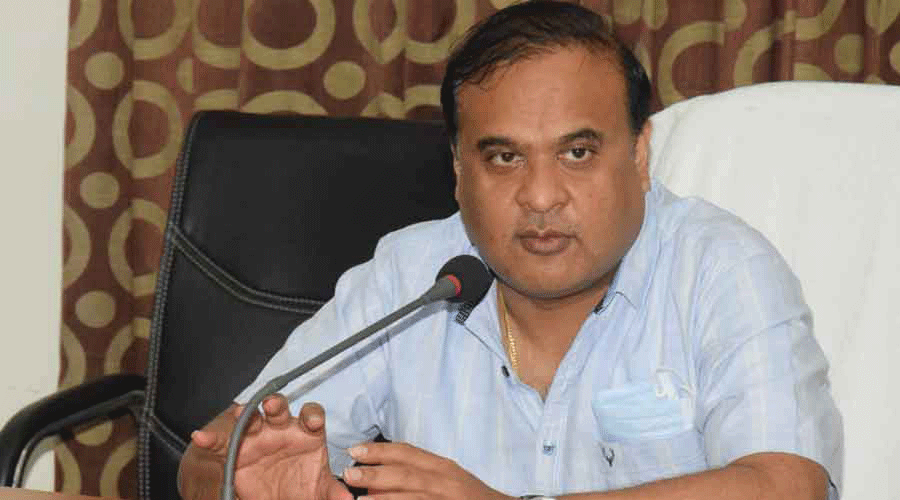The BJP-led Assam government has tied up with Tata Technologies Limited (TTL) and the National Dairy Development Board (NDDB) to ensure a “paradigm shift” in the state’s technical education and dairy sectors.
The memorandum of agreement with Tata Technologies Limited, signed in Guwahati on Wednesday between principal secretary (skill, employment and entrepreneurship department) B. Kalyan and MD (TTL) Warren Harris, will see 34 polytechnic colleges and 43 ITIs transformed into centres of excellence, a step aimed at making those trained at these institutes industry-ready.
The joint initiative will see Assam produce 15 to 20 thousands technically-efficient youth every year. The entire upgrade will take off by May 10, 2023 with the PWD (Building) department implementing the project under TTL.
“As part of the Rs 2390.80-cr project, we’ll provide built-up space of 12,000 sq ft in each institute for setting up technology labs & workshops in which around 20,000 students can be upskilled every year for recruitment. Assam Govt will bear Rs 366.06 cr in the total project cost,” chief minister Himanta Biswa Sarma tweeted.
The MOA was signed a day after the BJP-led alliance government celebrated its first year in office after retaining power in 2021 Assembly polls. The alliance government first came to power in 2016.
One of the key pre-poll promises of the BJP and its allies was to generate five lakh jobs a year, something the Opposition assert was “not” happening. Even the “promise” of providing one lakh government jobs within a year of taking charge did not materialise, the Opposition alleged.
Sarma said the partnership with TTL will unleash a “transformative” phase of education in consonance with the “need of the fourth industrial revolution” characterised by interconnectivity and smart automation.
Sarma thanked TTL chairman S. Ramadorai for his initiative in helping Assam deepen its ties with the Tata Group. The government is already working with the Tata Trusts for setting up 17 hospitals for cancer care in the state.
Wednesday also saw the state government sign an MoU with the National Dairy Development Board here, delegating the operational management of the East Assam Milk Producers’ Cooperative Union Limited to the NDDB, a move aimed at improving the financials of the ailing cooperative body, as it happened in the case of Purabi Dairy.
“Just as handing over the management of Purabi Dairy to NDDB in 2008 saved the cooperative body (West Assam Milk Producers’ Cooperative Union) from near collapse, I am certain today’s decision too would prove decisive in bringing a huge positive development in the fortunes of the milk producers’ union of eastern Assam,” Sarma said.
Referring to the overall daily milk production of about one lakh litre in the state (against the requirement of nearly 42 lakh litres) in comparison to sates such as Gujarat and Karnataka (with 2 crore litres and 80 lakh daily production respectively), Sarma dwelt on the measures implemented or in the pipeline to bring about a “White Revolution” in the state.
“Firstly, we have brought a large number of Gir breed of cows from Gujarat. We plan to take that number to 15,000. Secondly, we are making extensive use of artificial insemination methods so that we have the best cattle offspring. Thirdly, we are strengthening the cooperative environment by providing dairy farmers avenues to diversify their markets through initiatives such as today’s MoU,” Sarma said.
The state is also focussing on making Assam a milk-processing hub through investment in processing units and providing affordable veterinary care to dairy framers to ensure healthy livestock.
“If we are able to increase the daily milk production to even a million (10 lakh) litres, it would reduce our dependency on milk from outside the state. This would result in considerable monetary gain for our dairy farmers,” the chief minister added.










